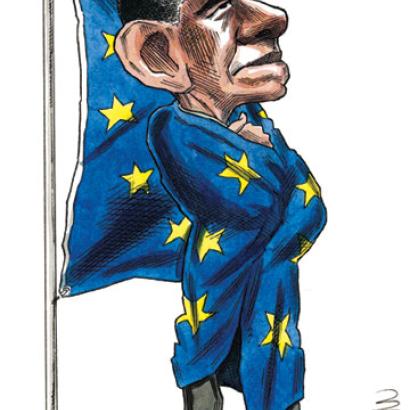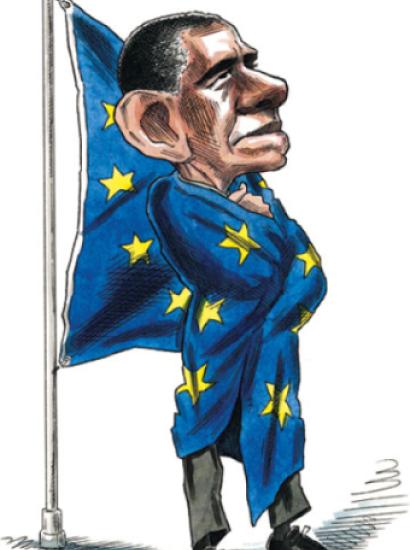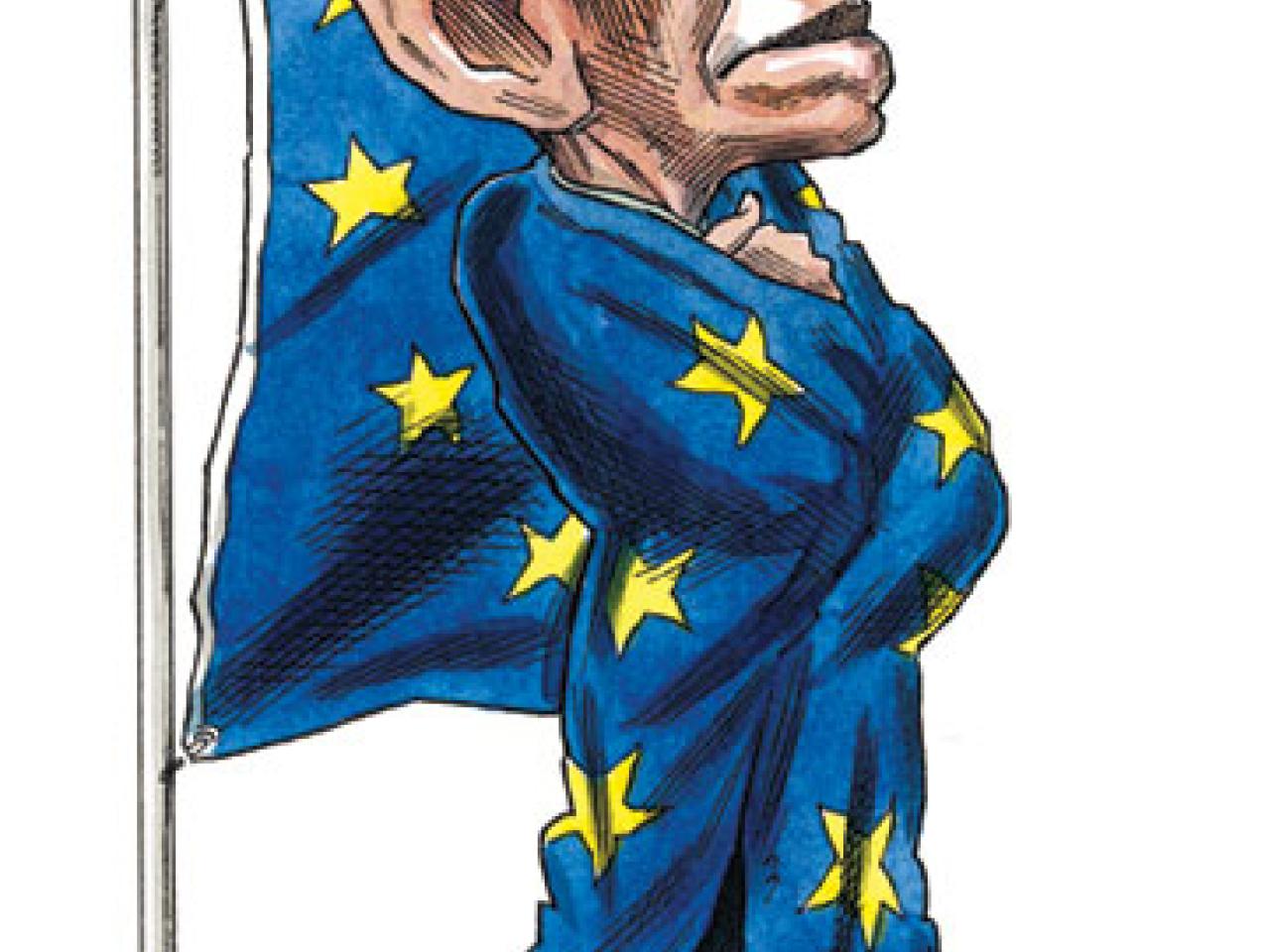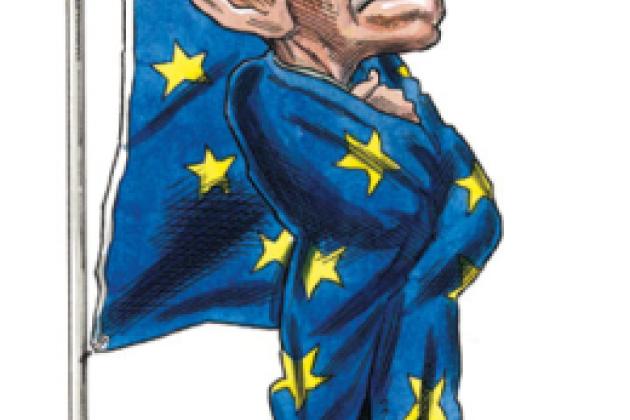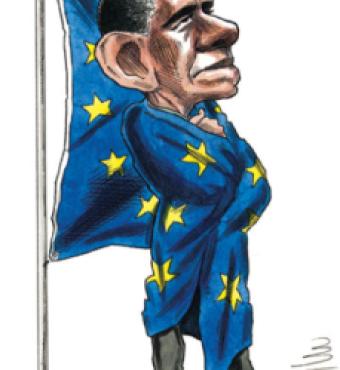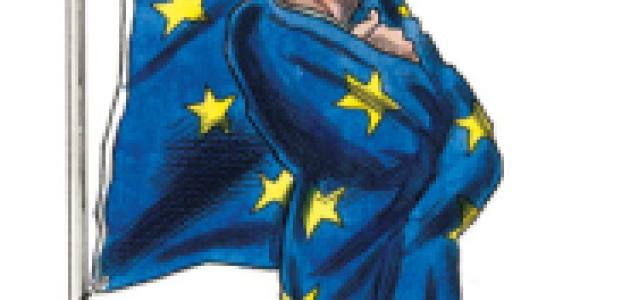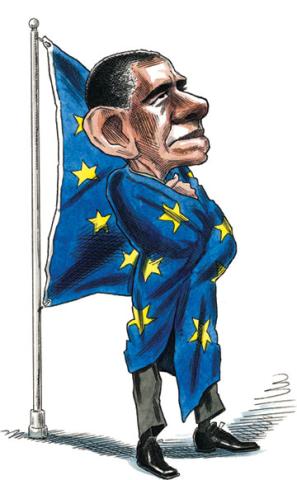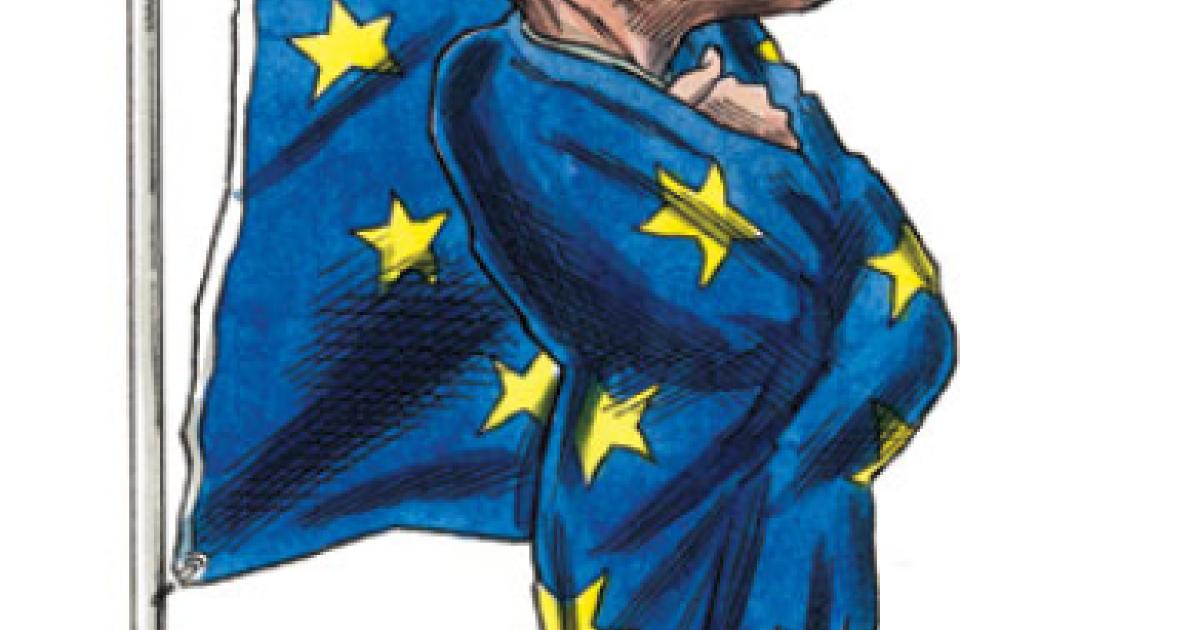- International Affairs
- US Foreign Policy
- Campaigns & Elections
- The Presidency
- Politics, Institutions, and Public Opinion
From my observation perch last fall at Stanford, and as an English European turned 24/7 news junkie, I noticed that many Americans still suffered from a touching delusion that this was their election. How curious. Didn’t they understand? This was our election. The world’s election. Our future depended on it, and we lived it as intensely as Americans did. All we lacked was the vote.
The world did not have a vote, but it had a candidate. A BBC World Service poll, conducted across twenty-two countries last summer, found Barack Obama was preferred to John McCain by a ratio of 4 to 1. Nearly half those asked said an Obama victory would “fundamentally change” their perception of the United States. And it certainly needs changing. During the two terms of President Bush, the Pew Global Attitudes Project, a series of worldwide public opinion surveys, has documented what anyone who travels around the world knows: a substantial fall in the standing, credibility, attractiveness, and therefore power of the United States.
In the American context, Obama is black or African-American. His candidacy exposed yet again how that thing anachronistically called race—meaning the legacy of slavery and segregation—is the hidden warp and woof of American politics. In the international context, Obama is three different things. First, he’s one of us—the child of an increasingly mixed-up world, now the most powerful man in it: a true cosmopolitan, not just African-American but also a little bit each of Hawaiian, Kenyan, Kansan, Indonesian. Second, he’s not Bush. (McCain was not Bush either, but a lot less not Bush.) Finally, he personifies everything that foreigners still love about America.
In Oxford, and traveling around Europe, I constantly meet young people who have grown up furious at the United States. “You know, I’m very pro-European,” one British student informed me. Stirred by this rarity— a pro-European Brit—I asked why she was pro-European. “Oh, I guess mainly because I’m anti-American.” But she wasn’t really anti-American; I would bet my bottom euro that she’s an Obamaniac now.
Culturally, socially, and aesthetically, Obama represents the America that is deep in young Europeans’ everyday imaginations, transported there by the soft power of American films, music, literature, and television series such as Friends, ER, The West Wing, The Fresh Prince of Bel-Air, and even Star Trek, together with serial abuse of the word “like.” You can hear it at any coffee shop in Oxford, and the speaker may be Slovak, German, or Chinese. That someone from Obama’s modest migrant background has made it to the White House revived a potent, positive image of the United States as a land of opportunity—an American self-image that much of the world has internalized, however little it corresponds with the statistically recorded facts of limited social mobility.
Now elected, Obama will discover within a few months how much of the worldwide hostility loosely tagged anti-Americanism truly is anti-Americanism and how much was just a violent allergy, shared by many Americans, to a particular president, a specific set of policies, and a certain version of Americanism.
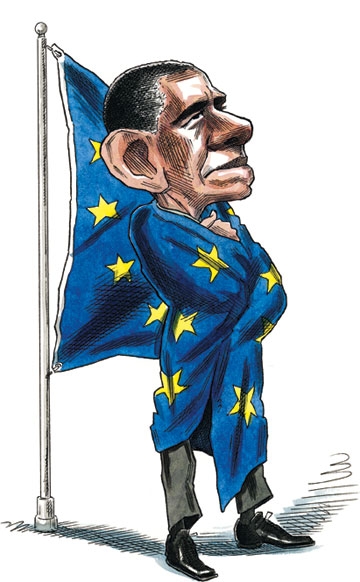
The very popularity of the Democratic candidate raised the stakes in the election to an alarming degree. Because international hopes were so high, the disappointment if Obama failed would have been devastating. The shock would have been even greater because of John McCain’s choice of Sarah Palin—who, like Bush, reinforced every European cliché about the otherness (cowboyness, hickiness, wackiness) of Americans. This disappointment might have been unfair to the likely content of a McCain foreign policy, but in international politics, as in financial markets, perceptions are a large part of the reality. If Americans had chosen McCain-Palin, after re-electing Bush in 2004, I don’t think it’s too much to say that a lot of Europeans would have felt like giving up on them. Of course European governments would not have given up on Washington (they could not afford to) but they would have had to operate within the constraining reality of popular disillusionment.
This would matter to the United States at the best of times. It will matter a lot more in these times.
Even before the financial crisis, the list of problems piling up for the new president’s in-boxes (both the one marked Urgent and the one marked Important, to recall John F. Kennedy’s distinction) was already formidable. Even before the crisis added perhaps a trillion dollars to an already staggering national debt, the relative power of the United States to achieve its goals on its own—unilaterally—had significantly diminished during the past eight years, while great powers such as China and Russia saw a renaissance.
Future historians may place a marker somewhere around 2000 to pinpoint the zenith of American power. In President Obama’s world of 2009, America’s need for allies and international credibility is greater than ever.








